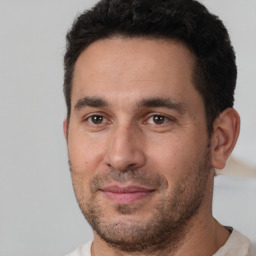Introduction to Research Skills
Research is a process of systematic investigation for raising knowledge through new facts. It is a detailed and careful study of issues or problems by using scientific methods. For starting up with research, skills that are important are report writing, problem-solving, analysis, logical thinking, presentation skills, computer skills and project management. This report is a study on The Manchester Company which is interested in starting a few new projects. They are interested in hearing some ideas from aspiring professionals. Before asking the potential candidates for their ideas, TMC would like proof that they know the way to research effectively. This report is divided into three tasks where first task covers different research methodologies, the second task is about primary and secondary information and the third task is about all issues which arise in research.
Need to Consult Directly With Our Experts?
Contact UsTask 1
1.1 Different Research Methodologies
There are different types of research methodologies which help the individual in gaining knowledge. These methodologies are very helpful in conducting the study effectually. Different methods have distinct benefits or drawbacks. These methods provide different solutions or answers to the research topic. For conducting a proper investigation, the individual must have analysis skills so that different answers by using distinct methods can easily be understood the most appropriate one can be used in the research. Following are few methodologies for conducting the study.
Experiments
Individuals who conduct research might be asked for complete tests for improving their cognitive abilities like attention, word recall, reasoning ability, etc. These are the tests that are conducted on computers or paper to. Different tests involve interventions where the researcher takes training programs or interactions. These interactions are normally followed by some tests. In training programs, researcher would observe people's behaviour or reactions to carry out their research. Few programs may be based on groups that how individuals behave or react in a group. During his interaction with the participants, he may also ask them to fill out questionnaires. In all these kinds of experiments, it is on the researcher what kind of experiment he prefers.
Surveys
This refers to collecting information from a large group of people through interviews, telephoning, questionnaires, etc. Surveys are of different types. Among all, in direct type, people are given with specific time to complete the survey. In other types, people generally complete the survey before a major experience or event. Surveys prove to be very helpful in conducting a research and it provides the researcher with relevant data.
Questionnaires
This is the best way to obtain information from a large number of people who may have ample time for interviews or experiments. It enables people to think and to take time to answer. Participants are allowed to express their feelings regarding investigation without thinking about the researcher's reaction. Participants should be honest in giving answers so the researcher with the relevant answers. Questionnaires should contain closed and open-ended questions along with multiple-choice questions. The problem in the questionnaire is that the response is less and mostly people do not answer all the questions. It can be conducted through internet sites, email attachments, etc. Questionnaire can also be administered personally through researcher which includes advantage for people who find difficulty in understanding the questions.
Evaluative
In most of the evaluations, the main goal is to provide useful feedback to sponsors, client-groups, staff, donors, etc. Feedback is always perceived as useful for decision-making. Evaluation is of two types, that is, formative and summative. Formative evaluates the strengths, delivery of program, procedures, inputs, etc. Summative evaluates the outcomes and effects of the research. Moreover, it estimates the cost incurred in developing the


 Company
Company













